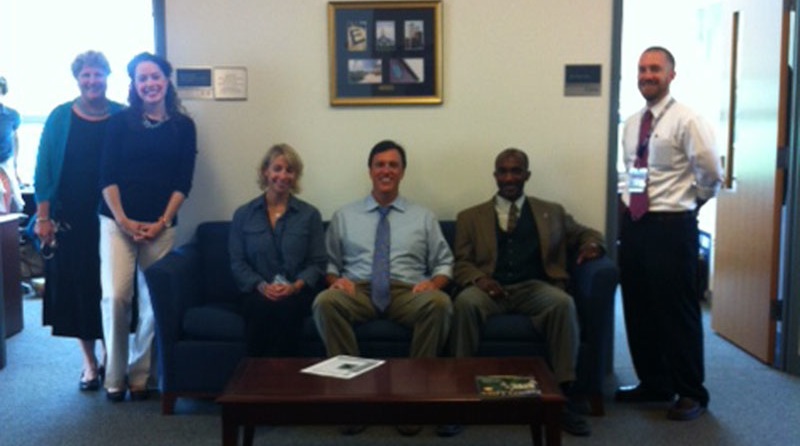
Nadiyah Browning ’16 Nina Pagano ’16: Unbeknownst to many students, there is an entire group of Episcopal faculty working behind the scenes to ensure their well being, both mentally and physically. Episcopal’s CARES Committee is a board of faculty members who meet every Tuesday to discuss how students are coping with the stresses of school life. This confidential group is comprised of the four upper school form deans (Sam Willis, Mike Letts, Cheryl Mclauchlan, and Sarah Baker), the school nurse (Anne Ravreby), EA’s learning specialist (Alyson Kurz), Middle and Upper School Psychologist (Dr. Nicole Chaikin), Upper School Chaplain (Rev. Jim Squire), Director of Student Services (Dr. Paul Anderson) and the Head of the Upper School (Dr. Delvin Dinkins).
Page fourteen of the Episcopal Academy Handbook outlines the main goal of the CARES team. “In many cases it is not entirely clear why a student is struggling and it is the responsibility of the CARES Committee to come up with a plan to address that situation.” McLauchlan, V Form dean, further describes the CARES team as “a committee developed to look at the overall wellness of kids. Wellness is not always only health concerns, academic concerns, or pastoral concerns; sometimes there are things that kids go through at home that we do not know about, yet we can tell that something is going on. [The CARES team meeting] is a place to look over and discuss the well being of the students.”
When questioned about the procedures of the committee Letts, IV Form dean, explains, “In some cases, if we see students falling into problem areas, such as consistently getting poor grades, as a team we will come up with a plan to solve the problem. Plans that have been useful in the past include mandatory study halls, remedial reading help, or weekly meetings with our learning specialist. In other cases, it could be that the student is having a crisis at home. If it goes in that direction, it’s a question of getting them the emotional support that they might need because they are not in a good place. Sometimes these two tracks, the academic and the overall well being of a student, overlap and will affect each other. All of these things are strictly to help the students get the support they need.”
This process can be quite confusing so here’s a fictitious example to help clarify the works of the CARES Team: John Doe has been visiting the nurse constantly but consistently shows no signs of physical illness. During a care team meeting Ravreby might say that she has been seeing John a lot in her office the past week. McLauchlan may add that John has also recently been to her office more than normal. The team can then go and see if he is struggling with something that they should be concerned about. McLauchlan clarifies, “It is not gossip. [The CARES team] is not a gossip committee talking about students.”
She also uses the analogy of football film to what the team does, “it is like watching film in football to analyze the plays. [In our case] we analyze the students daily school lives.” When asked if, in her opinion, CARES team is beneficial and important to the student body Mclauchlan answered with full confidence, “Once you put all the people together who interact with these kids on a day to day basis in a variety of different areas, I do believe that the care team is beneficial.”
While challenging Episcopal Academy students is a part of the EA mission, the responsibility of the CARES team is to help balance the academic rigor with the overall well-being of the student to allow the student to achieve his or her highest potential. Letts articulated this as well when he said, “We want to help each student get the help that he or she needs.” The CARES team simply helps alleviate obstacles that could hinder a student from success at The Episcopal Academy. As McLauchlan puts it, “This team is another set of eyes to help kids navigate life.”